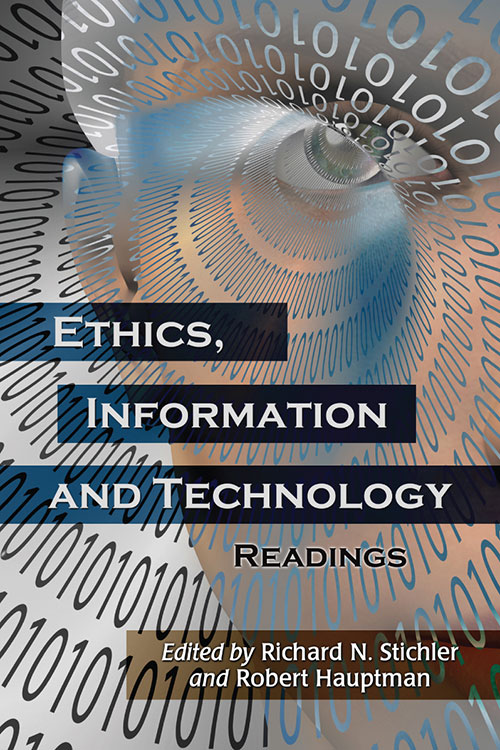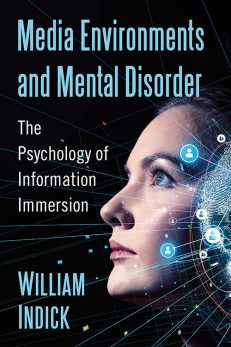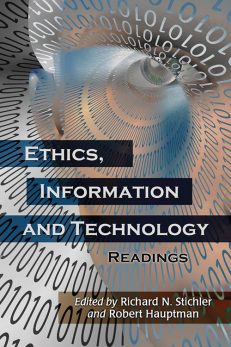Ethics, Information and Technology
Readings
Original price was: $39.95.$19.99Current price is: $19.99.
In stock
About the Book
Leaders in the emerging field of information ethics discuss five topics: freedom of information and the pursuit of knowledge; information, technology and education; information, rights and social justice; ethics and the Internet; and professional ethics. The essays have been drawn from many periodicals, including Library Journal, Daedalus, The Nation, Journal of Information Ethics and Wired.
About the Author(s)
Bibliographic Details
Edited by Richard N. Stichler and Robert Hauptman
Format: softcover (6 x 9)
Pages: 331
Bibliographic Info: appendix, notes, index
Copyright Date: 2009 [1998]
pISBN: 978-0-7864-4095-5
Imprint: McFarland
Table of Contents
Acknowledgments v
Introduction 1
Richard N. Stichler and Robert Hauptman
I. FREEDOM OF INFORMATION AND THE PURSUIT OF KNOWLEDGE
Of the Liberty of Thought and Discussion 7
John Stuart Mill
New Threats to Free Thought 21
Jonathan Rauch
Academic and Artistic Freedom 45
Nadine Strossen
Untruth or Consequences? 64
John C. Swan
II. INFORMATION, TECHNOLOGY, AND EDUCATION
Information, Technology, and the Virtues of Ignorance 79
Daniel C. Dennett
Do Expert Systems Have a Moral Cost? 95
Mark Alfino
Umberto Eco on Libraries: A Discussion of “De Bibliotheca” 100
Michael F. Winter
Education and Technology: Virtual Students, Digital Classroom 112
Neil Postman
Unabomber’s Secret Treatise: Is There Method in His Madness? 120
Kirkpatrick Sale
III. INFORMATION, RIGHTS, AND SOCIAL JUSTICE
Utilitarianism, Information and Rights 131
Partha Dasgupta
Communications Privacy: Implications for Network Design 152
Marc Rotenberg
Ethics in the Information Market 169
Richard N. Stichler
Librarianship and Public Culture in the Age of Information Capitalism 184
Henry T. Blanke
IV. ETHICS AND THE INTERNET
The Freedom of Information Act: Public Access in the Computer Age 203
Senator Patrick Leahy
Access Denied: Information Policy and the Limits of Liberalism 207
Grant H. Kester
Justice and Social Equity in Cyberspace 231
Ronald Doctor
Misconduct on the Information Highway: Abuse and Misuse of the Internet 241
Susan Hallam
Computers, Pornography, and Conflicting Rights 255
Virgina Rezmierski
V. PROFESSIONAL ETHICS
The Origin of Professionalism: Sociological Conclusions and Ethical Implications 261
Lisa Newton
The Ideological Use of Professional Codes 273
John Kultgen
Professionalism or Culpability? An Experiment in Ethics 291
Robert Hauptman
Appendix: Codes of Professional Ethics American Association of University Professors:
Statement on Professional Ethics
(from AAUP Policy Documents and Reports [1995] 105–106) 299
Statement on Freedom and Responsibility
(from AAUP Policy Documents and Reports [ 1995] 107–108) 301
Statement on Plagiarism
(from AAUP Policy Documents and Reports [1995] 109–110) 304
American Library Association: ALA Code of Ethics 307
Library Bill of Rights
(from Intellectual Freedom Manual, 3rd ed., p. 3) 308
Notes on Contributors 309
Index 311
Book Reviews & Awards
- “Recommended”—Library Journal
- “A major contribution to the growing body of literature that seeks to define and expand information age paradigms…find space for this one”—Public Libraries
- “Introduc[es] the reader to a varied set of complex issues, and to some of the more thoughtful writers who have addressed those issues”—LISCA
- “The collection affords the pleasure of discovering something to make one stop and think about information and how it affects values and ethics”—Booklist
- “Brings together essays that deal with key issues in information ethics from a variety of standpoints…worthwhile and perhaps salutary reading”—The Library Association Record
- “Useful”—Choice
- “A collection of serious, well-documented essays which demand the reader’s full attention”—The Australian Library Journal
- “These readings both teach and delight—Journal of the American Society for Information Science
- “Filled with useful information and challenging argumentation…should be of interest to anyone concerned with the ethical implications of recent developments in computer technology”—The Library Quarterly.





